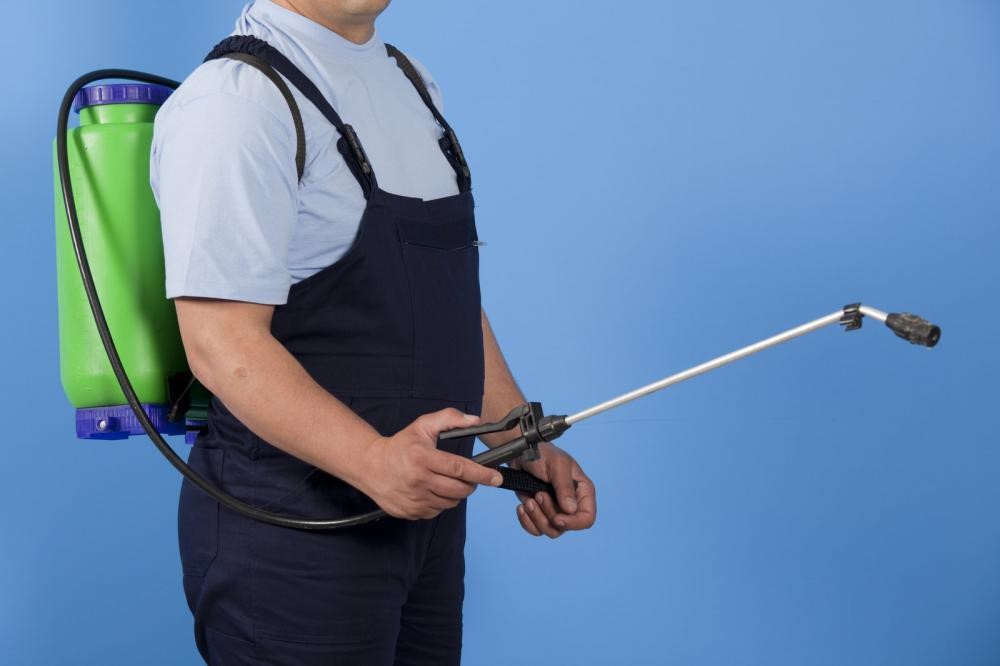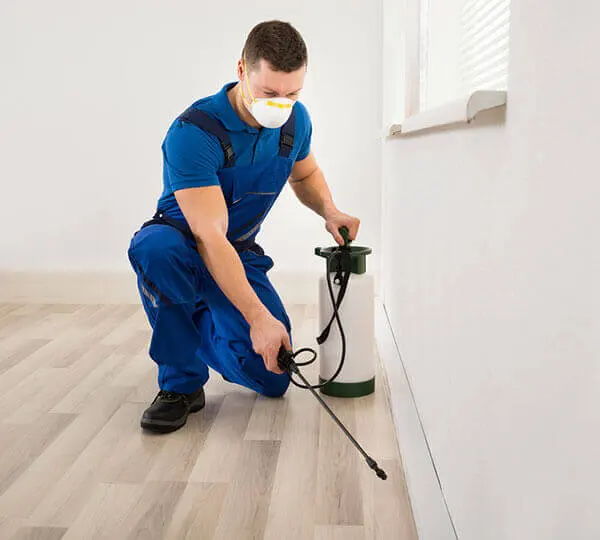Understanding the Different Approaches to Bug Control: A Comprehensive Guide

All-natural Bug Control Approaches
Utilizing environmentally friendly techniques such as friend growing and biological parasite control is crucial for successfully handling insects in farming setups. Companion growing includes growing different plants in distance to discourage pests, boost nutrient uptake, and enhance general crop wellness.
Organic pest control entails presenting natural killers or microorganisms to control pest populaces. Ladybugs, for example, feed on aphids, regulating their numbers without the need for chemical pesticides. An additional example is the usage of Bacillus thuringiensis (Bt), a germs that targets specific insect parasites while being safe to humans, pets, and helpful bugs.
These environmentally friendly approaches not only lower the reliance on artificial pesticides yet additionally help maintain biodiversity and soil wellness. By integrating all-natural insect control approaches into agricultural methods, farmers can achieve lasting insect administration while minimizing adverse influence on the environment.

Chemical Insect Control Solutions
In enhancement to all-natural pest control methods, the usage of chemical bug control remedies plays a significant role in efficiently handling pest populations in agricultural atmospheres. Chemical bug control remedies are created to target details pests that may cause extensive damage to crops. These solutions frequently include synthetic pesticides that are designed to eradicate pests quickly and efficiently.
Among the vital benefits of chemical bug control options is their efficiency in managing bug invasions widespread. Farmers can use these options utilizing various methods such as spraying, airing out, or seed therapy to shield their plants from unsafe insects, weeds, and conditions. In addition, chemical bug control options are fairly simple to apply and can offer fast results, helping farmers safeguard their returns and decrease financial losses.
Nevertheless, it is important to utilize chemical parasite control options carefully to decrease potential negative effects on the atmosphere, non-target microorganisms, and human health. Appropriate application strategies, adherence to safety standards, and normal monitoring are critical to guarantee the liable use chemical insect control services in farming practices.
Biological Parasite Control Approaches
Organic pest control approaches leverage natural predators or microorganisms to take care of parasite populaces in farming settings effectively. One typical biological control technique is the intro of all-natural adversaries, such as ladybugs or parasitical wasps, to target certain parasites.
Another organic control method includes making use of microorganisms like fungis, viruses, or bacteria to infect and eliminate insects. Overall, organic pest control techniques offer a lasting and targeted service to more info here pest monitoring in agriculture.
Integrated Parasite Management (IPM)
Integrated Pest Administration (IPM) is a thorough technique that incorporates various bug control strategies to successfully take care of and reduce pest populaces in farming systems. IPM focuses on lasting prevention of bugs via a combination of organic, social, physical, and chemical control techniques. By incorporating these different methods, IPM intends to reduce reliance on chemical pesticides, decrease environmental effect, and advertise sustainable insect monitoring techniques.
One key element of IPM is using biological controls such as natural killers, parasites, and pathogens to control bug populaces. This method utilizes the power of nature to preserve an equilibrium in between pests and their all-natural adversaries without creating harm to the environment.
Additionally, IPM includes social techniques like crop sanitation, turning, and habitat control to produce undesirable problems for insects and disrupt their life cycles. Physical controls such as mulches, barriers, and catches are additionally used to stop insect invasions.
Physical and mechanical Bug Control Methods
Utilizing non-chemical approaches, such as mechanical and physical parasite control strategies, is a critical element of extensive pest monitoring techniques, constructing upon the foundation of Integrated Parasite Administration's holistic technique. Mechanical pest control entails the use of physical obstacles or traps to stop insects from accessing and harming crops or frameworks. This method can consist of techniques like setting up screens on windows, making use of row covers in agriculture, or using sticky traps to capture bugs.
Physical parasite control methods, on the various other hand, concentrate on directly removing insects via physical methods. As an example, utilizing warmth treatments to remove bed pests or vacuuming up pests like ants or crawlers can be effective methods to take care of infestations without making use of chemicals. By including these mechanical and physical parasite control methods right this contact form into an Integrated Pest Administration strategy, specialists and people can decrease reliance on chemicals while still effectively handling pest populaces and minimizing damages.
Conclusion

In addition to all-natural insect control methods, the use of chemical insect control solutions plays a substantial role in properly handling pest populaces in agricultural environments.One of the crucial advantages of chemical bug control solutions is their performance in controlling bug infestations on a huge scale.Integrated Bug Management (IPM) is a thorough method that incorporates various bug control strategies to successfully take care of and reduce pest populaces in agricultural systems.Using non-chemical approaches, such as mechanical and physical bug control strategies, is an important facet of comprehensive bug monitoring strategies, developing upon the structure of Integrated Pest Administration's all natural strategy. By including these physical and mechanical parasite control strategies right into an Integrated Bug Administration plan, professionals and people can lower dependence on chemicals Our site while still successfully minimizing and taking care of pest populaces damage.